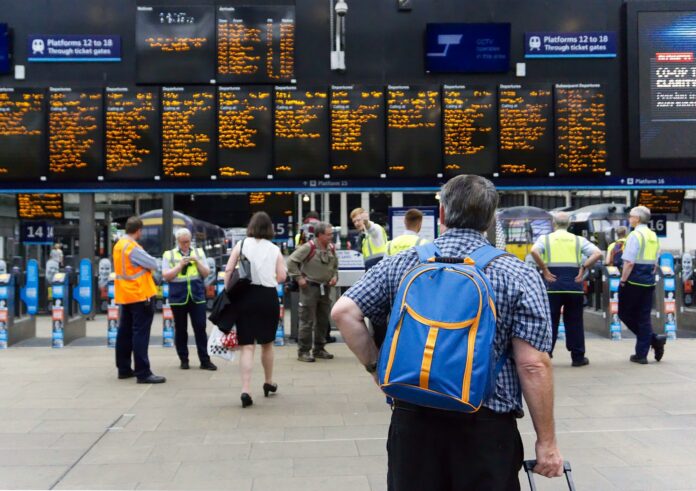The government says it has acted with the biggest intervention in its history to ensure rail fare increases for 2023 are capped at 5.9 per cent, 6.4 percentage points lower than RPI figure on which they are historically based.
Fares will officially rise on 5 March 2023 and like last year, the government is freezing them for the entirety of January and February, giving passengers more time to purchase cheaper flexible and season tickets at the existing rate.
Due to unprecedented levels of inflation, the government has, for this year only, aligned the increase to July 2022’s average earnings growth instead of RPI, more than halving the increase facing passengers, ensuring it’s easier on family finances while not overburdening taxpayers who have subsidised the running of the railways to the tune of £31 bilion since the pandemic.
Transport Secretary Mark Harper said: “This is the biggest ever government intervention in rail fares. I’m capping the rise well below inflation to help reduce the impact on passengers.
“It has been a difficult year and the impact of inflation is being felt across the UK economy. We do not want to add to the problem.
“This is a fair balance between the passengers who use our trains and the taxpayers who help pay for them.”
The rail industry is facing serious financial difficulty, which is why trade unions must agree to cost saving reforms. Taxpayers across the country contributed £31 billion to the railways over the course of the pandemic, ensuring stability for staff and avoiding job losses. Next year’s rail fares rightly strike a balance between the needs of rail passengers and taxpayers as we seek a sustainable long-term financial position following the pandemic.
Over the years since privatisation regulated rail fares have increased closely in line with inflation, never being more than 1 per cent above or below RPI. This government, however, recognises the wider economic challenges currently passengers and has taken action to link this year’s rate with July 2022’s average earnings growth, instead of RPI, and prevented an increase of 12.3 per cent.
Norman Baker of Campaign for Better Transport said: “We must be grateful for small mercies: it is clear that the increase could have been much worse. But this is still a large rise which will deter some people from using the railways.
“This increase stands in stark contrast to the situation with fuel duty, which was cut earlier this year after being frozen for years.
“What the Government ought to do is freeze rail fares to help passengers and encourage people onto the railways. Such a freeze could be funded by taxing fuel on domestic flights.”
Arthur Leathley, Chair of London TravelWatch, said: “While passengers will be a little relieved that train fares will be increasing by less than inflation, this is still a significant rise that may make travel unaffordable for some – particularly given how many people are already struggling with living cost
“With many passengers already feeling like they’re not getting good value for money, this just shows how longer-term fares and ticketing reform on the railways could not be more urgent.
“We’re still waiting to see how much fares will increase on TfL services, but it’s particularly important that bus fares are kept low. More people use the bus every day in London than any other type of transport, and they’re most used by lower income Londoners, so it’s really important they’re protected from unaffordable price increases.”
Photo credit: Shutterstock







































 0113 2082620
0113 2082620 info@railbusinessdaily.com
info@railbusinessdaily.com 15 Mariner Court, Wakefield WF4 3FL
15 Mariner Court, Wakefield WF4 3FL

